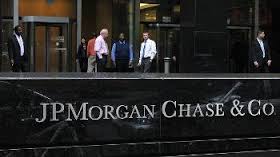Aggressive Remediation: Embraer and JP Morgan
 There is no question that the Justice Department has raised compliance program expectations in a number of areas. Whatever you may think about the efficacy or fairness of the FCPA Pilot Program, the Justice Department has committed itself to increasing transparency. That is a very good thing.
There is no question that the Justice Department has raised compliance program expectations in a number of areas. Whatever you may think about the efficacy or fairness of the FCPA Pilot Program, the Justice Department has committed itself to increasing transparency. That is a very good thing.
If you go back and review FCPA settlement actions from years ago, you will not find any structured analysis of the Justice Department’s settlement analysis. Of course, there are still issue where DOJ exercises discretion, and rightfully so.
For example, in determining the percentage discount from the lower end of the sentencing guideline range, the Justice Department weighs each of the factors: voluntary disclosure, cooperation and remediation. The weight given to each and the resolution is up to the Justice Department. Strict formulas become difficult to administer to take into account unusual or worthwhile circumstances. Each factual situation may be different and the Justice Department has to retain discretion to respond to each of those situations. Some will challenge this discretion and even suggest that it may be administered unfairly but the system is better, and after some historical experience occurs, the system may be adjusted again. For now, lets welcome the greater transparency and see how the system works.
In the compliance and remediation area, the Justice Department has blessed some harsh requirements and rewarded extraordinary responses to compliance problems.
In the Embraer enforcement action and settlement, the Justice Department concluded that Embraer implemented partial remediation – it disciplined a number of employees and executives but did not discipline a senior executive who was (at the very least” aware of bribery discussions in emails and had oversight responsibility for the employees involved in the misconduct.
Embraer paid a fine of approximately $107 million. It earned only a 20 percent discount from the bottom of the sentencing guideline range: it did not voluntarily disclose the conduct, and its compliance remediation was only partial. Embraer’s failure to discipline the one senior executive is inexplicable and cost the company millions of dollars in a further discount.
In the recently announced JP Morgan case, the Justice Department determined that JP Morgan engaged in extensive remedial measures, including: caused 5 employees to leave or resign; one employee who failed to supervise employees engaged in misconduct to leave the company; disciplined an additional 23 employees; imposed more than $18.3 million in financial sanctions.
JP Morgan adopted heightened controls related to their hiring program to ensure centralized review and approval of such requests; doubled resources assigned to compliance in Asia-Pacific; and required improved FCPA training.
 JP Morgan earned a 25 percent discount from the bottom of the sentencing range and paid $72 million in penalties under the Justice Department’s non-prosecution agreement. JP Morgan did not voluntarily disclose the conduct and its cooperate fully with the investigation. JP Morgan’s aggressive compliance remediation and disciplinary actions was instrumental in earning a 25 percent discount.
JP Morgan earned a 25 percent discount from the bottom of the sentencing range and paid $72 million in penalties under the Justice Department’s non-prosecution agreement. JP Morgan did not voluntarily disclose the conduct and its cooperate fully with the investigation. JP Morgan’s aggressive compliance remediation and disciplinary actions was instrumental in earning a 25 percent discount.
DOJ’s conclusion that JP Morgan engaged in extensive remediation sets out a significant precedent for awarding benefits to other companies seeking to resolve FCPA violations. JP Morgan earned an NPA, not a DPA or a criminal guilty plea, avoided a corporate monitor and promised to submit extensive compliance reports. While the 25 percent discount was significant but not overwhelming, JP Morgan’s resolution could have been a lot worse. Extensive remediation means exactly what it sounds like – extensive remediation of compliance program deficiencies and termination and discipline actions against a broad swath of employees involved in misconduct and other who failed to supervise or act in response to known misconduct.















